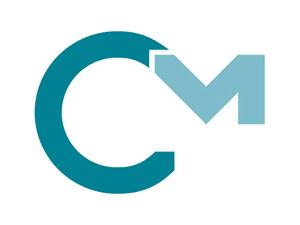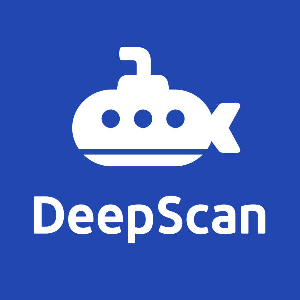10 Best Alternatives to CodeRush You Should Try in 2026
Compare the best Static Code Analysis Tool alternatives to CodeRush for your business needs
Looking for CodeRush alternatives? We've rounded up the top-performing alternatives based on features, pricing, and user feedback. Whether you're a small team or a large enterprise, these CodeRush competitors offer everything from robust communication tools to seamless integrations—helping you make the right switch.
CodeRush Alternatives Comparison Chart
| Software | Rating | Best For | Starting Price | Actions |
|---|---|---|---|---|

CAST AIP
|
(1)
|
Advancing Software Intelligence, Elevating Code Quality | Paid plan starts from $7,000 per year. | View Profile |

CodeMeter
|
(1)
|
Ensuring Code Integrity, Enhancing Security | Custom pricing | View Profile |

DeepScan
|
(2)
|
Deep Insights, Superior Code Quality | Start 14-day free trial. Paid plans starts From $7.56 per month. | View Profile |

GuardRails
|
(3)
|
Fortifying Code, Strengthening Security. | Start 7-day free trial. Paid plans starts From $35 per month. | View Profile |

ProGuard
|
(3)
|
Protecting Code, Enhancing Security | Custom pricing | View Profile |

Codecov
|
(4)
|
Uniting Code Coverage, Elevating Code Quality | Paid plan starts from $29 per month. | View Profile |

Code Climate Quality
|
(5)
|
Elevating Code Standards, Enhancing Code Quality | Start 14-day free trial. Paid plans starts From $16.67 per month. | View Profile |

OverOps
|
(7)
|
Ensuring Service Reliability, Enhancing Code Quality | Paid plan starts from $57 per month. | View Profile |

codebeat
|
(12)
|
Elevating Code Quality, Empowering Developers. | Start free public plan. private plan starts from $20 per month. | View Profile |

DeepSource
|
(14)
|
Elevating Code Quality, Streamlining Development | Start free open source projects. paid plan starts from $8 per month. | View Profile |
Top 5 CodeRush Alternatives in Detail

CAST AIP (Application Intelligence Platform) is a cutting-edge static code analysis tool that advances software intelligence and elevates code quality...
Why to Choose CAST AIP:
- Boost Development Efficiency: Quickly understand and manage complex software landscapes.
- Support Cloud & Modernization Goals: Simplifies refactoring, migration, and redesign efforts with visual guidance.
- Minimize Risk: Perform accurate impact analysis before code or architectural changes.
- Maintain System Knowledge: Retain critical knowledge even if original developers leave the team.
Pros
- Visual Architecture Mapping: Converts code into an interactive map of the application’s structure and components.
- Accelerates Understanding: Speeds up the comprehension of complex systems for new or external developers.
- Improves Collaboration: Helps developers, architects, and other stakeholders work better together with shared insights.
- Automated Documentation: Reduces the need for manual documentation by continuously updating system overviews.
- In-depth Impact Analysis: Enables safe and informed decision-making when altering or updating code.
Cons
- Learning Curve: May require initial training for users unfamiliar with architecture visualization tools.
- Enterprise-Level Focus: May not be cost-effective or necessary for small-scale or simple applications.
- Integration Needs: May require configuration and integration within the development environment.

CodeMeter is a robust static code analysis tool designed to ensure code integrity and enhance security for developers and organizations. With its comp...
Why to Choose CodeMeter:
- Unified Licensing & Protection: Offers a comprehensive platform for securing and licensing software in one solution.
- Trusted by Industry: Used by leading software publishers and device manufacturers for high-assurance protection.
- Secure IP Management: Ensures your code, algorithms, and licensing rules stay protected and tamper-proof.
- Scalable Licensing: Easily supports changes and expansion in your business model without re-engineering the software.
Pros
- High-Level Security: Uses strong encryption and secure hardware (smartcard-based CmDongles) to protect software IP.
- Flexible Licensing Options: Supports various delivery methods—dongle, software-based, cloud, or network-based licensing.
- Integration-Friendly: Seamlessly connects to back-office systems like ERP, CRM, and e-commerce platforms.
- Single-Time Integration: Once integrated, it requires minimal ongoing intervention for license management and protection.
- Cross-Platform Support: Supports multiple hardware form factors and virtualized environments.
Cons
- Initial Integration Effort: Requires setup and integration effort to embed protection and licensing mechanisms into software and workflows.
- Hardware Dependency (for CmDongles): Physical dongles may lead to logistical challenges or costs in large-scale deployments.
- Complexity for Small Projects: Might be more sophisticated than needed for lightweight or hobby software projects.

DeepScan is an advanced static code analysis tool that provides deep insights into codebases, enabling developers to ensure superior code quality. Wit...
Why to Choose DeepScan:
- Deeper Insights: Finds issues traditional linters miss, improving long-term code reliability.
- Impact Categorization: Helps prioritize bugs with High, Medium, and Low severity tags.
- Modern Stack Ready: Tailored for fast-moving JavaScript and frontend frameworks.
Pros
- Advanced Semantic Analysis: Goes beyond typical linting by following data and execution flow.
- Fast & Scalable: Analyzes ~7,000 lines/sec, suitable for both individuals and teams.
- Low False Positives: Maintains under 5% false alarm rate through precise filtering.
- Framework Support: Specialized rules for React and Vue.js projects.
- GitHub Integration: Auto-scans new commits to keep code health current.
Cons
- Limited Language Support: Focused only on JavaScript and TypeScript (not suitable for multi-language projects).
- Requires Online Integration: GitHub sync might not suit offline or private repo environments.

GuardRails is a robust static code analysis tool that fortifies code and strengthens security for development teams. With its comprehensive set of fea...
Why to Choose GuardRails:
- Engineering Teams: Avoid security slowdowns while maintaining development speed.
- Developers: Gain security awareness through real-time, contextual learning.
- Security Engineers: Catch and resolve vulnerabilities early in the development lifecycle.
- DevSecOps Teams: Ideal for teams shifting security left and embedding it into DevOps pipelines.
Pros
- Developers: Get real-time feedback to fix security vulnerabilities while coding.
- Multi-language Teams: Use GuardRails across various codebases and repositories.
- DevOps Engineers: Automate security scans within CI/CD pipelines like GitHub, GitLab, Bitbucket, etc.
- Security-Conscious Developers: Benefit from actionable insights and in-platform security education.
Cons
- DevOps Teams: May require time to integrate GuardRails across CI/CD pipelines initially.
- Enterprise Users: Might need to upgrade to premium plans to access advanced features.
- Security Architects: May find customization limited compared to open-source or self-hosted alternatives.

ProGuard is a robust static code analysis tool designed to protect code and enhance security for developers and organizations. With its advanced featu...
Why to Choose ProGuard:
- Efficient optimization: Helps reduce app size and improve runtime performance.
- Basic code protection: Obfuscation acts as a deterrent to reverse engineering.
- Custom tooling support: Enables developers to build bytecode analysis or manipulation tools using ProGuardCORE.
Pros
- Reduces app size: Efficient bytecode shrinking helps in lowering APK size for faster downloads and better performance.
- Obfuscates code: Renames classes and methods to make reverse engineering harder.
- Open-source: Freely available and backed by a trusted vendor (Guardsquare).
- Highly configurable: Fine-grained control over what gets optimized and obfuscated.
- Extensible core: ProGuardCORE enables custom tooling and static analysis use cases.
Cons
- Steep learning curve: Requires familiarity with bytecode and configuration files.
- Not full-featured security: Doesn’t provide runtime protection like DexGuard or advanced obfuscation techniques.
- Command-line only: No graphical interface, which might be challenging for beginners.

Codecov is a powerful static code analysis tool that unites code coverage analysis with the goal of elevating code quality for development teams. By p...
Why to Choose Codecov:
- Speed Up Development: Merge code faster with instant test insights and coverage metrics.
- Improve Test Strategy: Know where your tests are lacking and how to improve them.
- Boost Stability: Avoid flaky test issues that break builds unexpectedly.
Pros
- Test Automation: AI-generated unit tests to improve coverage automatically.
- CI Stability: Flags flaky/failing tests to stabilize CI pipelines.
- Tool Integration: Integrates with most CI tools and Git platforms.
- Developer Efficiency: Helps reduce debugging and merge time.
Cons
- Enterprise Dev Teams: Initial setup can be complex for large legacy projects.
- Budget-Conscious Users: Some features may require a paid plan.

Code Climate Quality is a dynamic static code analysis tool that elevates code standards and enhances code quality for development teams. With its com...
Why to Choose Code Climate Quality:
- Automation-First Approach: Eliminates manual code reviews and reduces human error.
- AI and Developer Friendly: Supports modern workflows where both humans and agents contribute code.
- Speed and Simplicity: Lightweight Rust CLI ensures performance with minimal overhead.
Pros
- Free & Open Source: The CLI is free and built in Rust, ensuring fast performance and transparency.
- Comprehensive Checks: Covers linting, formatting, security, maintainability, and test coverage.
- AI-Ready: Supports validation of code written by both humans and AI agents.
- Cloud Option Available: Use Qlty Cloud for centralized config and deeper insights.
Cons
- Rust CLI Knowledge Needed: Users need some familiarity with CLI tools.
- Limited IDE Integration: May lack seamless integration with popular IDEs compared to larger platforms.
- New Product: Community and support ecosystem is still growing.

OverOps is a comprehensive static code analysis tool that ensures service reliability and enhances code quality for development teams. With its advanc...
Why to Choose OverOps:
- Enhanced Reliability: Improves software reliability while maintaining fast development cycles.
- Proactive Monitoring: Reduces downtime and user-facing issues with early detection and insights.
- Team Collaboration: Facilitates alignment and cooperation across development, operations, and product teams.
Pros
- AI-Driven Analysis: Improves incident response by identifying the root cause and impact faster.
- Tool Integrations: Seamlessly connects with observability and CI/CD systems for unified visibility.
- Reliability Guardrails: Enforces safe deployments by validating against SLOs and predefined rules.
- Centralized Monitoring: Offers a single platform to track service health and delivery performance metrics.
Cons
- SLO Configuration Time: May require significant time and planning to define meaningful SLOs for each service.
- Feature Complexity: Advanced functionality might be overwhelming or unnecessary for smaller teams.
- Initial Setup Effort: Configuration and integration can be complex depending on the system architecture.

codebeat is a leading static code analysis tool designed to elevate code quality and empower developers to write cleaner, more maintainable code. With...
Why to Choose codebeat:
- Unifies code quality reports for all stakeholders in one place.
- Easy-to-understand scoring system for better decision-making.
- Ideal for continuous monitoring and collaborative review.
- Saves time by highlighting actionable improvements.
Pros
- Supports multiple programming languages for full-stack analysis.
- Real-time insights and visual dashboards help prioritize fixes.
- Strong integrations with GitHub, Bitbucket, GitLab, and Slack.
- Quick setup and easy team access control.
- Improves developer accountability and collaboration.
Cons
- Limited offline/self-hosted capabilities compared to some competitors.
- Feature depth may vary between programming languages.
- Can generate too many low-priority warnings without filtering.

DeepSource is a cutting-edge static code analysis tool that elevates code quality and streamlines development workflows for teams and individual devel...
Why to Choose DeepSource:
- Complete DevSecOps Platform: Offers SAST, static analysis, SCA, and code coverage in one unified tool.
- Focused Code Reviews: Baseline analysis highlights only new issues introduced in pull requests.
- Automated Code Formatting: Runs open-source formatters on every commit and auto-commits when needed.
- Smart Integrations: Works seamlessly with Jira, GitHub, Slack, and Vanta to automate workflows.
- Easy Issue Management: Suppress irrelevant or intentional issues with one click to reduce noise.
- Customizable Quality Gates: Set metric thresholds and enforce them to maintain high standards.
- Actionable Security Reports: Get OWASP® Top 10-based vulnerability insights for your project.
- Pull Request Insights: View code quality and security feedback directly within your PR workflow.
- Shareable Reports: Generate and share readable reports without requiring login access.
Pros
- Complete DevSecOps Platform: Offers SAST, static analysis, SCA, and code coverage in one unified tool.
- Efficient Code Review: Baseline analysis highlights only new issues in pull requests to focus efforts.
- Seamless Integration: Connects with tools like Jira, GitHub, Slack, and Vanta to enhance workflows.
- Security Best Practices: Provides OWASP® Top 10-based reports to identify and address vulnerabilities.
- Developer Productivity: Supports automatic code formatting and easy issue suppression for smoother coding.
Cons
- False Positives: May generate alerts that need manual verification and suppression.
- Initial Setup Complexity: Smaller teams might struggle with the configuration process.
- Learning Curve: Advanced features and customizations may require extra training for new users.
CodeRush vs Competitors: Feature Comparison
Compare the features of with its top competitors to find the best fit for your business needs.
| Features | CodeRush |
|---|
How to Choose the Right CodeRush Alternative for Your Business
- Developers Focused on Code Quality: Designed to help write cleaner, faster, and more maintainable code.
- Agile & TDD Teams: Perfect for teams practicing test-driven development and frequent refactoring.
- Productivity Seekers: Save hours with one-keypress refactoring and navigation shortcuts.
- Standard-Oriented Teams: Maintain visually organized code that aligns with team or personal standards.
Frequently Asked Questions
What are the best alternatives to CodeRush?
There are many strong alternatives to CodeRush, each offering a unique mix of features, pricing, and user experience. Depending on your needs (e.g., budget, team size, specific features), the tools listed above can serve as excellent replacements or even improvements.
Why should I consider an alternative to CodeRush?
You might explore alternatives if:
- CodeRush is too expensive for your needs
- It lacks certain features or integrations
- Performance issues or bugs are affecting your workflow
- The user interface or support doesn't meet your expectations
- Your business has outgrown its capabilities
How do I choose the right CodeRush alternative?
Start by identifying what you like or don’t like about CodeRush. Then compare the alternatives based on:
- Features that match your workflow
- Pricing and free plan availability
- Ease of use and onboarding
- Integration options
- Customer support quality
Are there free alternatives to CodeRush?
Yes, several free tools can replace or closely replicate CodeRush’s core features. While they may have limitations, they’re ideal for small teams or basic use cases. Many of the tools listed offer free tiers or trials.
Do these alternatives offer the same features as CodeRush?
Yes, several free tools can replace or closely replicate CodeRush’s core features. While they may have limitations, they’re ideal for small teams or basic use cases. Many of the tools listed offer free tiers or trials.
Is it easy to migrate from CodeRush to another tool?
Most modern SaaS tools offer import/export functionality or integrations with migration platforms. Many even provide migration support or setup assistance to make switching seamless. Be sure to check the documentation or customer service before switching.
How secure are these CodeRush alternatives?
The listed alternatives are trusted by thousands of businesses and follow industry-standard security practices, including data encryption, GDPR compliance, and secure authentication. Always review the provider’s security policy if data protection is a concern.
Can these alternatives integrate with the tools I already use?
Most alternatives support a wide range of integrations with tools like Google Workspace, Slack, Zoom, Microsoft 365, Zapier, and others. Check the integration options for each software to ensure smooth compatibility with your current tech stack.
What’s better than CodeRush?
“What’s better” really depends on your specific needs. While CodeRush is a solid tool, some users prefer alternatives that offer:
- More flexible pricing
- Better user experience
- Advanced features
- Improved support or onboarding